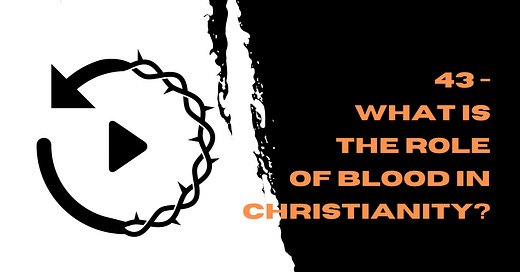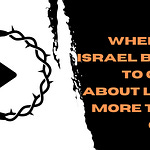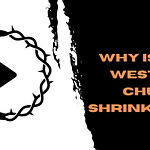Symbols make it easy for people to come together for a common cause. Take national flags, for example. You may not know every country’s flag, but you know yours. At the Olympics, millions of people are singularly identified by one colorful rectangle. Though countries are distinct through their traditions, geographies, laws, and languages, none of those are as easy to latch an identity onto. For those who hold those identities dearly, flags concisely encompass all they hope–or dread–their country to be.
Flags can also be used by opposing forces for drastically different causes. Revolutions will waive their country’s flag while trying to dismantle its own governance. Some US citizens stormed the Capitol building to stop what they understood to be a false election, desecrating a cherished institutional symbol while waving the same flag flying on top of it. Ironically, the same flag may represent drastically different futures to different people. Therefore, symbols like flags more accurately represent what people hope for more than what they may actually be.
This is reminiscent of the imagery of blood throughout the Bible. Human beings come in different shapes, sizes, colors, and languages, but the presence of blood binds us all in a common experience. Man can be represented through his common share of blood. God declared, “For the life of a creature is in the blood.” (Leviticus 17:11, NIV). We now know that DNA separates species from one another, but our blood is heavily loaded with that DNA. We all can visualize blood. We easily recognize it. The symbol of blood represents our life–and, therefore, our species’ identity–just as a flag represents our country’s heritage.
Like flags, “blood” can also represent corporate identities. We are reminded of family bloodlines–this was certainly important in biblical contexts across priesthood and kingship. We can also see it in national identities, especially when the Israelites were forbidden to intermarry with surrounding cultures. So powerful is the concept of blood in national contexts that the Assyrian empire would exile half the population of conquered nations and “import” different nationalities into the region to intermingle the bloodlines. Biblically, this is most evident in 2 Kings 17. Blood binds man, nations, and families together.
It is safe to say, then, that blood is a most precious symbol of God’s creation. That must be why God explains the ritual sacrifices as, “I have given it to you to make atonement for yourselves on the altar; it is the blood that makes atonement for one’s life.” (Leviticus 17:11, NIV) The offering of an animal’s blood is the closest symbol that correlates to the death of man’s life due to sin. As our poor actions steal the promise of our lives, the Israelites must exchange one life for another. Each atoning sacrifice was a reminder of the death of our potential perfection.
Though the Israelites had not yet received the laws included in Leviticus, they experienced atonement through the blood firsthand in Egypt. During the Passover in Exodus 12, the Hebrews took a young, unblemished male lamb and prepared it roasted fully over a fire. Having saved some blood, they smeared it on the sides and top of their doorposts. God told them, “The blood will be a sign for you on the houses where you are; and when I see the blood, I will pass over you.” (Exodus 12:13, NIV) Little could the ancient Israelites know just how precious the blood of atonement would one day be through Jesus, but it set the stage for them to be united by blood–both the lambs’ and their own.
It’s also the sensitivity of this symbol that made any interaction with blood so rigorously unacceptable. When Cain slays his younger brother, Abel, God hears Abel’s spilled blood cry out from the ground (Genesis 4:10). Though Abel died, his blood carried his identity. Like our identity, our blood was not meant to be stolen by another.
When Old Testament men came in contact with a woman’s menstrual blood or a dead animal or a dead person, they remained unclean until evening (Leviticus 15). Blood was not to be shared with another.
No one was to consume any blood. God would set His “face against that person.” (Leviticus 17:10) Whether for health reasons or symbolism, blood was not to be consumed by another.
Blood is the sacred identifier of an individual, whether a person or a beast. Their DNA is a unique imprint, given by God in accordance with His will on their life. Anyone attempting to steal, share, or consume it aims to destroy what God held precious.
Yet, Jesus arrived with opposite intentions. In both literal and metaphorical ways, Jesus came to have His blood spilled on Calvary by others, instruct His disciples to “consume” His blood through Communion, and share His blood with us in one final atonement. Jesus’ blood equally symbolized everything He is: His identity as God and Man, His provision of Salvation, and His hope for what man could be.
But just as His blood offers atonement for all who take refuge in it, it similarly condemns those who don’t. When God commanded the sacrificial rules, He warned, “Any Israelite who sacrifices…in the camp or outside of it instead of…the Tent of Meeting…that man shall be considered guilty of bloodshed.” (Leviticus 17:3-4, NIV) The angry Jewish mob that demanded Jesus’ life sent Him outside of the city–to Calvary–to die. Their oblivious sacrifice and obstinance cursed them within the Old Covenant as well as the New.
Like a flag torn between two opposing sides, Jesus’ spilt blood represented retribution for the Jewish leaders, whereas Christians now know it to mean reconciliation; it was always meant to. Though the Israelites were anointed to welcome the Suffering Savior, they were also the ones to spill His blood. However, for those of us who choose to see His blood as our atonement, that must be what we rally around—not a dynamic speaker or our favorite church brand. The blood alone. As Jesus poured out His life—His blood—for us, we must give our lives for everything It represents. His identity as the one unblemished Lamb is the only one worth uniting around as one nation under the blood.













Share this post